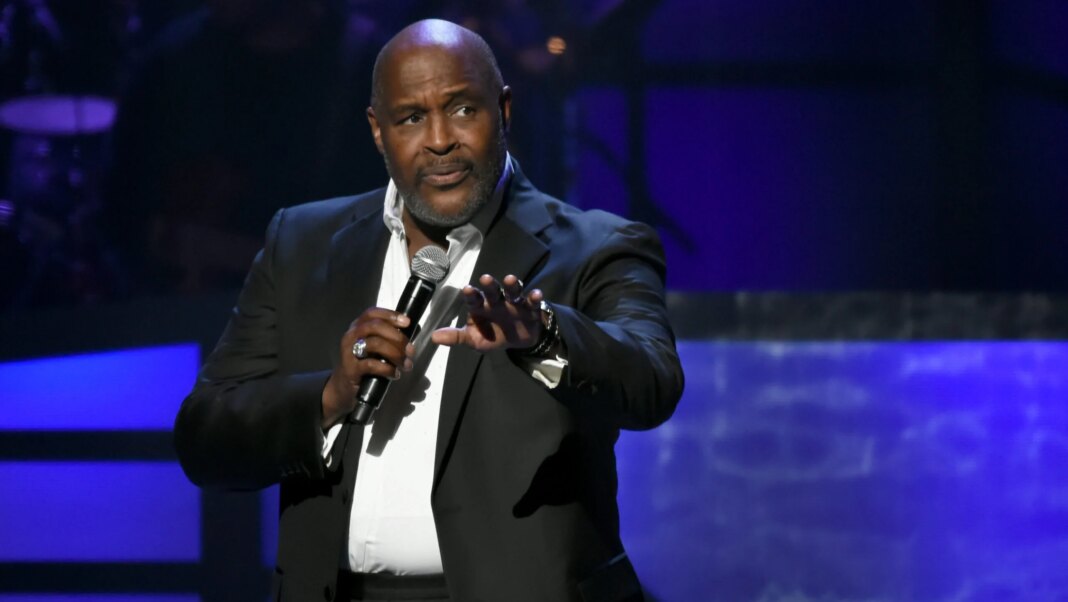Four-Digit Tithes to the Church, in This Economy?
The relationship between faith and finances has always been a complex one, but recent events have brought this issue into sharper focus, particularly during challenging economic times. The call for generous donations, especially in the form of four-digit tithes, raises important questions about the appropriateness of such demands in today’s financial climate.
The Viral Incident
A recent incident involving Bishop Marvin Winans at Perfecting Church in Detroit has sparked intense debate online. During a “Day of Giving” event, Winans was captured on video publicly addressing a congregant about her donation. As she handed him a check for $1,235—$1,000 plus an additional $235—Winans visibly expressed disappointment, stating, “That’s only $1,200,” and asked her to return with the full $2,000 he had requested.
The moment quickly attracted attention and criticism for several reasons, notably the pressure it seemed to place on churchgoers to donate more than they could afford. The setting further intensified concerns as many people struggle economically, raising questions about the church’s expectations from its members.
The Context of Economic Hardships
The call for large donations cannot be discussed without considering the broader economic landscape. Reports indicate growing job losses and financial strain across various communities, especially affecting demographics like Black women who are often hit the hardest by economic downturns. In light of this reality, Winans’ public reprimand has been viewed by many as tone-deaf or out of touch with the struggles of congregants who might be making sacrifices just to meet basic needs.
Much of the backlash stems from the understanding that faith communities should ideally support their members, particularly during tough times, rather than placing additional financial burdens on them.
The Historical Backdrop
Bishop Winans is a prominent figure in both religious and musical circles. His family legacy as part of the acclaimed Winans gospel group has granted him considerable influence. However, this status also invites scrutiny regarding how financial requests from influential figures are perceived by the community. With a new campus for Perfecting Church long under construction—reportedly since the early 2000s—the pressure to fund such ambitious projects adds another layer of complexity to the conversation about giving.
This incident is not unprecedented in the world of church fundraising. Many church leaders, including other well-known figures like Marvin Sapp, have faced similar scrutiny for their fundraising tactics. Sapp, for example, was seen instructing ushers to “close the doors” until financial goals were met. Such tactics can lead to uncomfortable dynamics within worship services, where faith and financial obligation combine in ways that leave some congregants feeling uneasy.
Reactions from the Community
The fallout from Winans’ sermon has elicited mixed reactions. While some defend him, arguing that it’s their spiritual duty to support the church, a significant number have taken to social media to express their concerns. Critics point to the importance of cultivating an environment that fosters faith without the pressure of financial coercion. This situation has led to a broader conversation about how churches communicate their financial needs and the ethics surrounding donations.
For many, attending church is about spiritual nourishment and community support, not feeling compelled to contribute beyond their means. As the economic situation grows increasingly precarious, these discussions around financial expectations in places of worship become all the more vital.
The Ethical Consideration of Tithes
The ethical implications of asking for substantial tithes should not be overlooked. People often turn to their faith for solace and support, and the last thing they need is to feel guilty for not meeting unrealistic financial demands. This raises significant questions: Should churches reassess their fundraising models? Are they truly aware of the financial realities of their congregants? Balancing the needs of the church with the well-being of its members is a challenge that calls for thoughtful deliberation.
In a world where many are just scraping by, the notion of four-digit tithes can seem extravagant, even exploitative, especially when presented in front of a congregation that may be struggling. This situation invites ongoing dialogue about the true essence of faith-based giving and the moral responsibility that comes with it.



